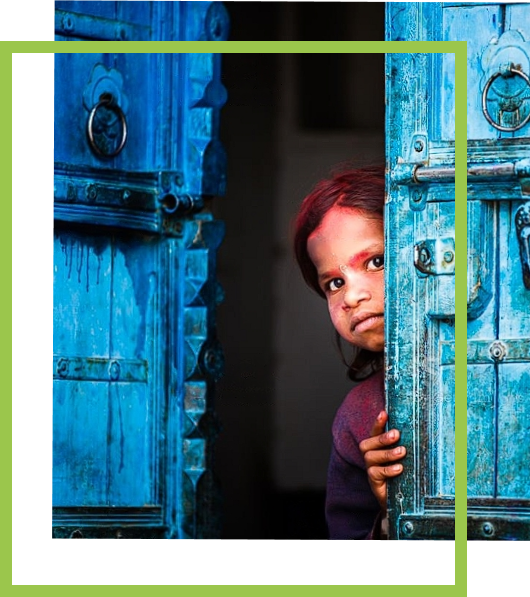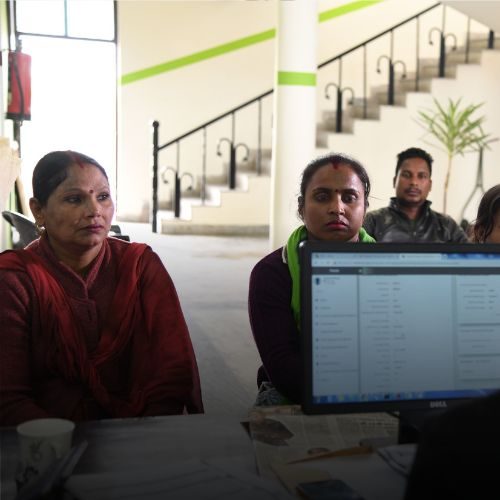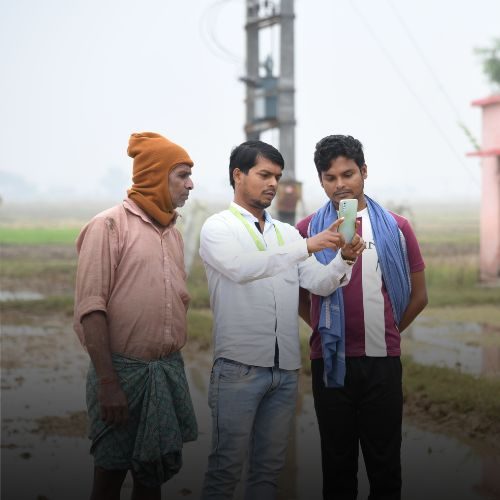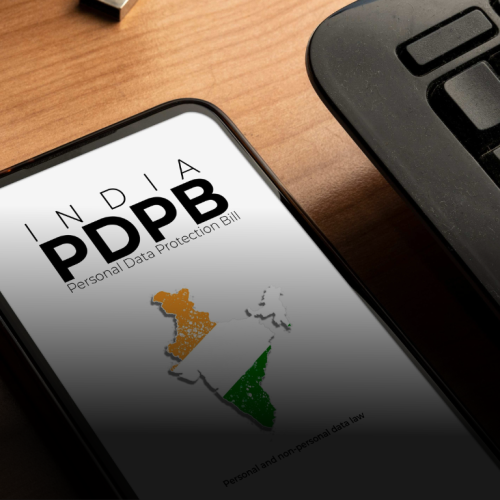FINANCIAL CUSTOMER PROTECTION
AN INTERIM REPORT OF OUR WORK UNDER THE CENTRE FOR CUSTOMER PROTECTION

ACKNOWLEDGEMENTS
We are grateful to the Bill and Melinda Gates Foundation for entrusting us with a grant under the Customer Protection Program housed at Dvara Research. We thank our advisors for the Program – Anna Wallace, Bindu Ananth, Rafe Mazer and Rajesh Bansal.
We thank the several industry experts and our technical, knowledge and implementation partners with whom we are working to solve pressing customer protection problems and from whom we are learning about the challenges faced by customers of financial services in India.
Executive Director’s Message
Dvara Research considers itself to be the voice of low-income households. This has been our mission for 15 years now, and during this time, we have built a strong and credible reputation in research and advocacy positions relating to financial inclusion and financial customer protection. We have worked hard to deliver thinking of the highest quality in these two domains using a systematic and multi-pronged approach. It is this approach and its impact that I would like to call your attention to, as you read this report, whose intent is to showcase our work on financial customer protection.
We recognise that policy making has played a crucial role in enhancing and expanding the access to financial services for low-income households. We also appreciate the enthusiasm with which financial service providers have innovated to accomplish the vision of policy makers.
In our work, we listen intently to government officials and regulators on issues they worry about, and we focus our efforts towards helping them deliver on their mandates for consumer welfare.
We publish our thinking in a variety of formats, such as blogs, reports, opinion pieces and journal articles, that we make available to all stakeholders in the industry and policy-advocacy networks. In doing so, we seek to communicate to stakeholders the tremendous importance of customer protection as an integral and constitutive feature of meaningful financial inclusion.
Through a carefully chosen portfolio of impactful action-research and solution-testing, we will continue to bring our repertoire of skills and strategies to bear in raising the bar for customer protection in the financial inclusion domain.
Sincerely,



Dvara Research considers itself to be the voice of low-income households. This has been our mission for 15 years now, and during this time, we have built a strong and credible reputation in research and advocacy positions relating to financial inclusion and financial customer protection.
Spotlight Projects
Monitoring and Diagnostic Tools
Why are public insurance schemes not popular?
Could poor women be managing their money digitally?
In what ways is contact with formal finance causing customers to become aggrieved?
About Dvara Research
Dvara Research envisions a world in which every low-income household and every enterprise has complete access to suitable financial services and social security through a range of channels that enable them to use services securely and confidently. We identify ourselves as the voice of low-income customers. They are the reason we exist, and we are relentless advocates for their financial wellbeing.
Since 2008, Dvara Research has deeply analysed, and carefully written about, financial inclusion and social protection in India from policy, regulatory, and practitioner perspectives that are anchored to its mission. Its work has gained the admiration and respect of policymakers and regulators, and since its inception, Dvara Research has been a research-partner of choice for such key policy-making bodies as the Reserve Bank of India, Securities and Exchange Board of India, Pension Fund Regulatory and Development Authority etc.
Our work at Dvara Research is categorised into four verticals that conduct transformative research into the various aspects of financial inclusion and social protection. These four verticals are – Financial Systems Design, Future of Finance, Social Protection, and Household Finance Research. The Customer Protection Program, launched in November 2021, is a horizontal program that overlaps across all the areas of work that we do.

POLICY INITIATIVES
This initiative develops and disseminates financial systems’ designs focused on achieving both inclusion and stability. The research efforts here aim to facilitate a well-functioning financial system for India that is built on the three fundamental pillars of high-quality origination, orderly risk transmission and robust risk aggregation. Such a financial system is needed to deliver full financial inclusion and financial deepening in a manner that enhances systemic stability.
This initiative aims to rigorously understand and document the financial lives
of low-income or excluded households. A fundamental principle that guides this initiative’s research efforts is the idea that a household is the key economic unit for policymakers, regulators, and practitioners to pay attention to. This is so that they may facilitate the creation of a suite of appropriate financial products and services, eventually enabling well-rounded balance sheets and financial wellbeing for the entire household unit.
This initiative studies and writes about all aspects of digital finance and digital inclusion, with a particular focus on customer protection for low-income households and low-income women customers in the digital financial services domain.
This initiative studies and writes about the design and implementation of
social protection in India. The core idea that informs this initiative’s research efforts is that India’s social protection system needs to be inclusive and citizen centric, from the conception of its social protection programs all the way to the delivery of its benefits.
The Customer Protection Program was launched in November 2021 with a mission to focus on solutions that speak to the changing landscape of issues pertaining to financial customer protection in India.















